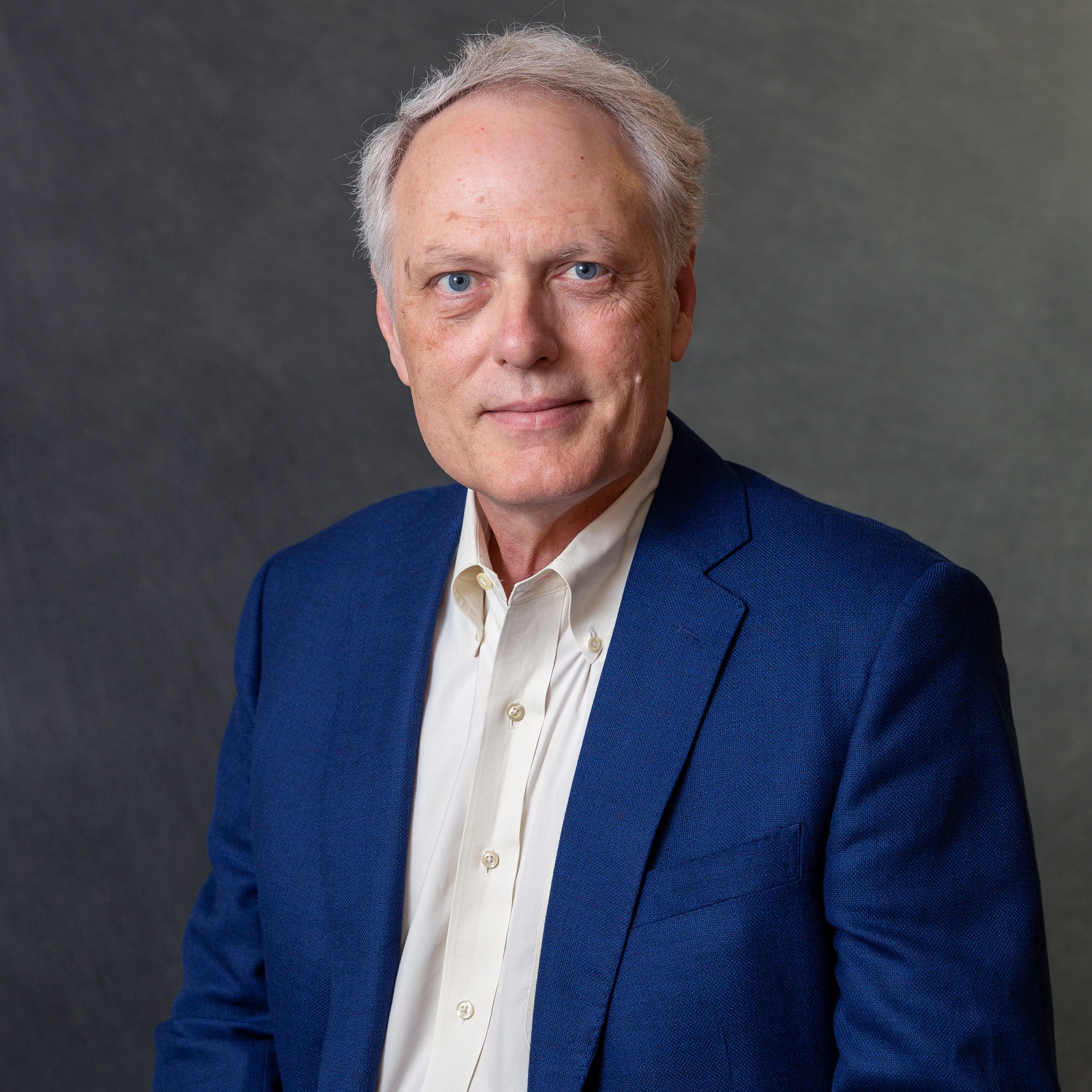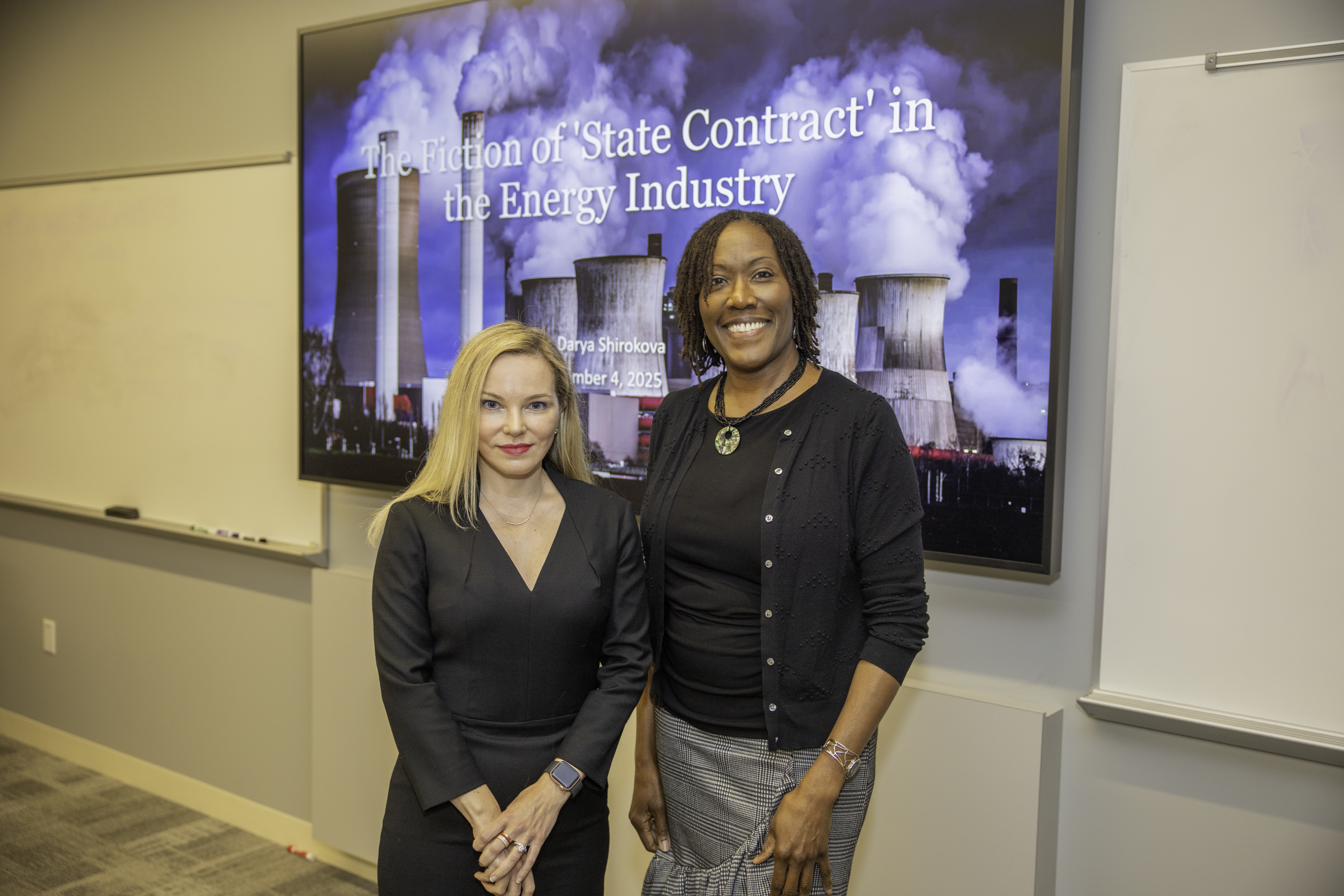Feb. 4, 2025 — Ambiguous property rights are among the biggest obstacles to expanding geothermal energy in the United States, a nationally recognized energy law expert said during a recent University of Houston Law Center webinar. The event was hosted by UHLC’s Environment, Energy and Natural Resource Center.








April 28, 2025 - Electricity use is expected to increase dramatically over the next few decades as new data centers, artificial intelligence and expanded electrification come online. But speakers at the University of Houston Law Center’s 9th annual North American Environment, Energy, and Natural Resources Conference said the nation’s ability to meet that demand has been complicated by tariffs, the wider threat of a trade war, supply chain constraints and growing unpredictability.

April 24, 2025 — A thought-provoking conversation unfolded at the “Anti-Democratic Rights of Nature” hosted on Wednesday by the University of Houston Law Center’s Environment, Energy and Natural Resource Center. The central question: Should the rights of organism and ecosystems — like marshes or streams and the creatures living there — hold legal rights that may supersede human development and use?
April 23, 2025 – Net-zero — the idea that what goes up in the environment will come out of the environment at the same rate — along with the carbon capture and storage was the focus of a recent webinar featuring James W. Coleman, an energy law professor at the University of Minnesota. Coleman's research focuses on addressing critical energy policy issues, particularly around energy infrastructure and its regulation.

Houston, April 21, 2025 – A modern-day gold rush is upon humankind, but this time the sought-after resources are extraterrestrial. As commercial and private space exploration continues to rise, the lack of specific legal frameworks creates significant risks and questions, according to Monika Ehrman, the Inaugural Distinguished Scholar of the University of Houston Law Center’s Environment, Energy and Natural Resources Center.

April 16, 2025 – George Buckley is the recipient of the Second Annual Environment, Energy & Natural Resources Center Student Scholarship Award.
March 12, 2025 – Climate change continues to be a pressing concern for both public and private sectors, often viewed as a formidable challenge in the pursuit of dependable energy resources due to stringent environmental policies and regulatory demands. This complex issue was at the heart of a recent webinar titled “Permitting Reform’s False Choice” hosted by the University of Houston Law Center’s Environment, Energy, and Natural Resource (EENR) Center.
February 3, 2025 – Texans still remember the devastating winter storm of 2021, when record snowfall, freezing temperatures, and widespread power outages crippled the entire state.

December 2, 2024 – The global consequences of climate change are engaged in one of the most extreme love/hate relationships with energy in all its forms including but not limited to what kind or energy is available, where it comes from, and how it might be exchanged for something safer, renewable, and sustainable for the benefit of all.

May 29, 2024 — Energy lawyers, academics and industry leaders discussed the critical need for resource management approaches to navigate the country’s evolving energy landscape during the 8th Annual North American Environment, Energy, and Natural Resources Conference hosted this spring by the University of Houston Law Center.

May 03, 2024 – Catherine J.K. Sandoval, United States Chemical Safety and Hazard Investigation Agency Board Member, described the agency's work as akin to a "rolling disaster movie," underscoring the importance of preventing chemical incidents.

April 16, 2024 – Energy and legal experts will examine the challenges and prospects of carbon capture, infrastructure repurposing, and a resilient electricity grid during the University of Houston Law Center’s 8th Annual North American Environment, Energy and Natural Resources event on Thursday, April 18.
June 14, 2023 — Kristen Eichensehr, Director of the National Security Law Center at the University of Virginia Law School, said that preparation is key to mitigating the threats of climate change, during the 7th Annual North American Environment, Energy and Natural Resources Conference this spring.

April 20, 2023 — Industry and academic leaders will discuss the increasing political, climatic, and criminal risks to the North American energy supply during the University of Houston Law Center’s 7th Annual North American Environment, Energy, and Natural Resources Conference on Thursday, April 27.

March 14, 2023 — University of Houston Law Center Professor Gina Warren has been selected as the Vermont Law and Graduate School (VLGS) Distinguished Energy Law Scholar.

Feb. 21, 2023 — Mary Christina Wood, University of Oregon School of Law Philip H. Knight Professor and Faculty Director spoke about the emergency need for cleaning up the atmosphere with natural climate solutions at a University of Houston Law Center EENR lecture.

Feb. 06, 2023 — The intersection of ethics, economics and law in the evolution of a blue economy and offshore wind development was illustrated by Anastasia Telesetsky, Professor of Law at California Polytechnic State University.
Jan. 11, 2023 — The University of Houston Law Center was listed in the “Top 9 best value law schools 2022” by Bankrate, which evaluated law schools across the country in four key areas.